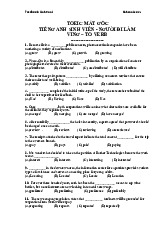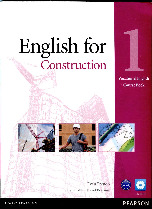

Preview text:
IELTS Sprouting by ECT Simple Reading Practice
GLOBALISATION OF EDUCATION AND THE WORKPLACE
Globalisation has affected most aspects of our lives. One area which
has changed is education. More and more people move to different
countries for their studies. At the same time, more people stay at home
and study by distance learning. It is now easy to learn without attending a college
or university, or attending less often. 'Blended learning' means studying partly in a
traditional way in the classroom and partly on line or via email. These changes
also mean that there is now more interest in 'lifelong learning', the idea that we go
on learning throughout our working lives and even into retirement. It is easy to
attend 'webinars' or online seminars without being away from our offices. Many
adults go back to college later in life because it is so easy to get a qualification
without giving up work or disrupting family life.
Different countries have benefitted from the globalisation of
education in different ways. Many British, Australian and American
B universities run their degree programmes in countries throughout Asia,
and many students, parents and employers feel this is a valuable opportunity.
Students can get an internationally recognised degree at a much cheaper price
than going abroad and so can improve their chances of getting a good job. At the
same time, those in the countries providing world-class degrees also benefit.
They have greater access to ideas and knowledge from all over the world and
having international students enriches their universities. 1 IELTS Sprouting by ECT
However, it is not good news for everyone in some developing
countries. It is usually the elite - or the richest people in the large cities -
who have access to international education. Many people in rural areas
have not even had a primary education. Also, those areas usually do not have
reliable internet connections and most people do not own a computer. It will take
a bit more time for international opportunities to reach everyone in developing countries.
One concern people have about globalisation is that it can start to
mean 'westernisation'. In other words, local knowledge can be lost and
money seen as more important than culture. Education should treat
every culture with respect; it should not be just learning about the West, but
should include different ways of teaching and approaches from around the world.
The aim is to enrich and share; the flow of ideas and information should go from
East to West as well as from West to East.
The development of technology has helped work-based learning to
develop. Blended learning means part of the course can be delivered online,
so people don't have to miss work to go to classes. Older or recently retired
employees have been given the opportunity to develop new skills as tutors,
mentors and coaches for the work-based part of these courses. This kind of work-
based training was common in fields such as nursing and teaching, but has now
spread to careers which were traditionally not closely linked to education.
There are some challenges involved in work-based learning. Some
lecturers might find it difficult to teach students with a lot of work
experience. It may also be difficult to find teachers who can teach in
different places and at different times. However, it is a positive trend as there are
more ways to learn and people can study at different stages of their lives. 2




